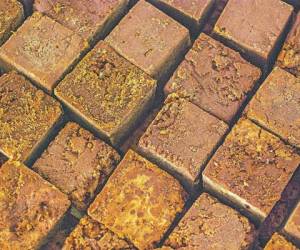Sitting among the green hills of eastern Honduras, where the strong winds carry the aroma of the best coffee in the world, is the town of El Paraíso. This is the home of two unassuming men who have created energy out of what most people would call “trash.”
They are not engineers, or famous inventors, yet Óscar Pagoada and Javier Cáceres have built a wind-powered generator using bits of wood, scrap metal and the magnets from microwave ovens that were sitting idle due to the energy rationing affecting all of Honduras.
Óscar and Javier were forced to act on their long-held idea by the 12 hour electricity blackouts which affect remote Honduran communities without ready access to electricity. “We must learn to live from nature's resources, obtaining sustenance from nature. We created energy through the use of magnets; out of some coils and wood we built a dynamo that works with wind or water power. We generated electrical energy out of those elements and we’ve been able to help our community by using things that people consider waste,” explains Pagoada with excitement in his voice.
The Idea
A look at their electricity bill was enough to ignite their passion for electronics and their motivation to help others. When his monthly bill demanded 1,200 lempiras (USD $52.80), Pagoada knew it was time to get to work.
Once he built and installed his generator at home, the $52.80 bill was reduced to $26.30. That was his inspiration and Óscar contacted Javier; a man with a quiet and reserved nature yet with strong hands and a large heart, who is now in charge of assembling the generators.
“We take advantage of metal refuse and whatever is at hand; we get together to see what needs to be done and since I work with metal projects I use the materials left over, recycling them to build the generators,” says Javier. “That’s why it’s not a big financial investment, yet it helps many people; we're a poor country and we must help one another.”
The winds blow strong in El Paraíso, and for these ingenious friends each gust represents power, since wind is the force that makes their prototype function.
“We had the materials and finished it in 15 days, installing it on top of a hill to generate a radio signal for the environmental station,” says Javier. They still remember the first time they saw the generator working: “It made us happy because we knew it would be of great help,” says Javier next to a smiling Óscar.
Healthcare in the Dark
News travels fast in a small village, especially when it comes to saving money in a community where for two months every year coffee production is the only means of survival. Little by little people in other towns started hearing about the two men who collected refuse in their free time and made electricity from it. Everyone thought it unusual, and perhaps impossible.
Outside El Paraíso, in a place called El Gamalotal, there is a healthcare centre with the capacity to help 100 people that lies unused because of a lack of electricity. Since there was nowhere to keep medical supplies refrigerated, children were not receiving their vaccines and on the days it was possible to provide care it was the sun that dictated when appointments would end.
“The mayor [of El Gamalotal] contacted us when he found out about the project and told us they had built a healthcare centre but couldn’t use it due to the lack of electricity in the area; as a result the population wasn’t receiving any care,” says Óscar.
These circumstance compelled Óscar and Javier to gather more materials together and make another generator. In less than a month, El Gamalotal Health Center began to provide full free services to its residents.
“This generator has a long and useful life; the one we installed at the healthcare centre has been running trouble-free for a year, and here in El Paraíso the wind never stops blowing,” concludes Javier, as he shields his eyes from the sun to look at the generator. Seen from afar it looks like a tiny colourful fish floating in the air, not a device that brings healthcare to an entire community.


























